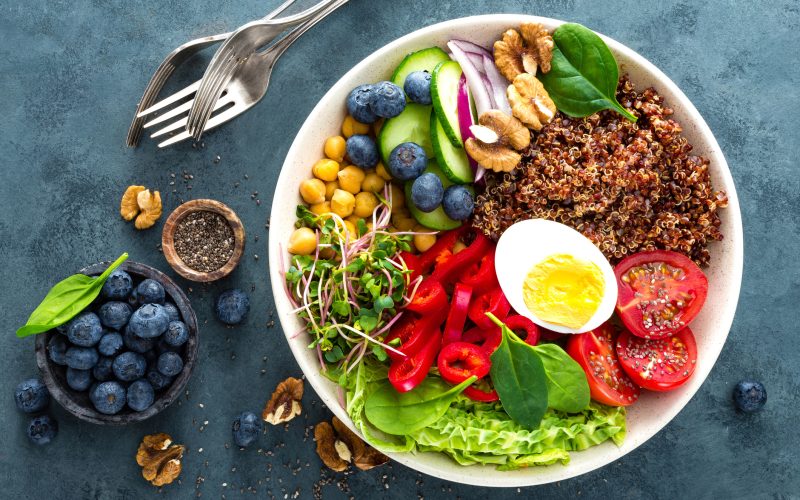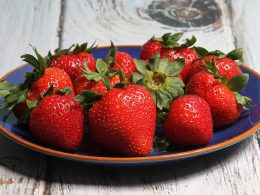Introduction
In today’s busy world, it’s easy to overlook what we eat. Fast food, sugary snacks, and processed meals have become part of our daily routine. However, nutrition is key to feeling good and staying healthy. This article explores how you can transform your kitchen into a hub for nutritious meals that are simple, tasty, and full of the vitamins and minerals your body needs. Whether you’re new to healthy eating or looking to improve your diet, understanding the basics of nutrition can make a huge difference in your life.
What is Nutrition?
Nutrition is the process by which our bodies take in and use food to maintain health and energy. Every day, we consume different types of foods, and each food group provides essential nutrients. These include vitamins, minerals, proteins, fats, carbohydrates, and water. Each nutrient plays a special role in keeping your body functioning well.
For example, proteins are important for building muscles, while carbohydrates provide energy. Fats are essential for brain health, and vitamins and minerals help your body perform everyday functions. Eating a balanced diet ensures that your body gets the right mix of these nutrients.
Building a Nutrition-Friendly Kitchen
One of the first steps in eating healthier is making sure your kitchen is stocked with the right ingredients. A well-organized kitchen can inspire you to cook nutritious meals at home. Here’s a simple guide to creating a nutrition-friendly kitchen:
- Fill Your Pantry with Whole Foods: The foundation of any healthy diet is whole foods. These include fresh vegetables, fruits, grains, beans, and nuts. Try to keep less processed food in your kitchen and aim to buy organic or locally grown products when possible. Whole foods are packed with nutrients and are often lower in sugar and unhealthy fats.
- Choose Healthy Proteins: Protein is an essential building block for the body. In your kitchen, opt for lean sources of protein like chicken, turkey, tofu, beans, and fish. Fish like salmon is rich in omega-3 fatty acids, which are great for heart health. If you’re a vegetarian, beans, lentils, and quinoa are excellent alternatives.
- Stock Up on Healthy Fats: Healthy fats, like those found in avocados, nuts, seeds, and olive oil, are important for brain health and hormone regulation. Unlike unhealthy fats found in fried foods and processed snacks, healthy fats can actually help lower bad cholesterol levels.
- Go for Whole Grains: Whole grains like brown rice, quinoa, oats, and whole wheat pasta are rich in fiber and essential nutrients. Fiber helps regulate digestion and keeps you feeling full longer. Swap refined grains (like white rice and white bread) for whole grains to improve your diet and overall health.
- Fresh Fruits and Vegetables: Aim to fill half of your plate with fruits and vegetables at every meal. These are packed with essential vitamins, antioxidants, and fiber. A variety of colors on your plate means you’re getting a range of nutrients, so choose fruits and vegetables in different shades to ensure you’re getting a balanced diet.
Healthy Meal Ideas for the Whole Family

Creating nutritious meals doesn’t have to be difficult. Here are some simple meal ideas that anyone can make in the kitchen:
1. Breakfast: Avocado Toast with Eggs
Start your day with a balanced breakfast. Toast whole grain bread and top it with mashed avocado. Add a poached or scrambled egg for protein. This meal is rich in healthy fats, fiber, and protein to keep you feeling full throughout the morning.
2. Lunch: Quinoa Salad with Grilled Chicken
A light and nutritious lunch could include a quinoa salad with grilled chicken. Add your favorite veggies, such as tomatoes, cucumbers, and bell peppers. For dressing, use olive oil and lemon juice for a fresh, flavorful finish.
3. Dinner: Stir-Fried Vegetables with Tofu or Chicken
Stir-fries are quick, easy, and packed with nutrients. Choose a variety of colorful vegetables like broccoli, carrots, bell peppers, and snap peas. Stir-fry with tofu or chicken and a drizzle of soy sauce or tamari for flavor. Serve over brown rice or quinoa for a wholesome meal.
4. Snacks: Hummus with Veggies
Snack on hummus with fresh veggies like carrot sticks, cucumber, or celery. Hummus is a great source of protein and fiber, and the veggies provide important nutrients. This snack is filling and keeps you energized until your next meal.
5. Dessert: Greek Yogurt with Berries
For a healthy dessert, try Greek yogurt topped with fresh berries. Greek yogurt is high in protein and probiotics, while berries are loaded with antioxidants. This combination is not only delicious but also supports your gut health.
The Importance of Hydration
While eating nutritious food is important, drinking enough water is just as essential. Water helps digest food, regulates body temperature, and keeps your skin healthy. Aim to drink at least 8 glasses (64 ounces) of water a day. If you find plain water boring, try infusing it with fresh fruit like lemon, cucumber, or mint for added flavor.
Nutrition Myths and Facts
There are many myths surrounding nutrition, and it can sometimes be confusing to know what’s true. Here are a few common misconceptions and the facts behind them:
- Myth: Carbs are bad for you.
Fact: Carbohydrates are an essential source of energy for your body. It’s the type of carbs that matter. Opt for complex carbohydrates found in whole grains, vegetables, and fruits instead of refined sugars and processed foods. - Myth: All fats make you gain weight.
Fact: Not all fats are created equal. Healthy fats from sources like avocados, olive oil, and nuts are good for your health and can help you maintain a healthy weight when eaten in moderation. - Myth: You need to avoid all sugar.
Fact: It’s not about avoiding all sugar but choosing the right kind. Natural sugars found in fruits and vegetables are perfectly fine. It’s the added sugars in processed foods and sugary drinks that you should limit.
Conclusion
Transforming your kitchen into a space where healthy meals are easy to make doesn’t require drastic changes. By filling your pantry with whole foods, healthy fats, lean proteins, and plenty of fruits and vegetables, you’re already on your way to better health. Eating a balanced diet helps your body stay strong, gives you energy, and supports your overall well-being. With simple meal ideas and a focus on hydration, you can improve your lifestyle and make nutritious eating a fun part of your day.
By creating a nutrition kitchen, you’re taking control of your health and setting yourself up for long-term success. Eating well is a journey, but it starts with one small step: cooking with intention and using whole, nourishing foods to fuel your body.












